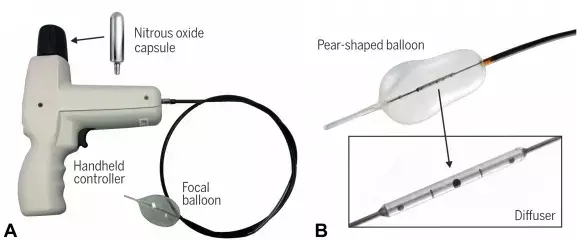- Home
- Medical news & Guidelines
- Anesthesiology
- Cardiology and CTVS
- Critical Care
- Dentistry
- Dermatology
- Diabetes and Endocrinology
- ENT
- Gastroenterology
- Medicine
- Nephrology
- Neurology
- Obstretics-Gynaecology
- Oncology
- Ophthalmology
- Orthopaedics
- Pediatrics-Neonatology
- Psychiatry
- Pulmonology
- Radiology
- Surgery
- Urology
- Laboratory Medicine
- Diet
- Nursing
- Paramedical
- Physiotherapy
- Health news
- Fact Check
- Bone Health Fact Check
- Brain Health Fact Check
- Cancer Related Fact Check
- Child Care Fact Check
- Dental and oral health fact check
- Diabetes and metabolic health fact check
- Diet and Nutrition Fact Check
- Eye and ENT Care Fact Check
- Fitness fact check
- Gut health fact check
- Heart health fact check
- Kidney health fact check
- Medical education fact check
- Men's health fact check
- Respiratory fact check
- Skin and hair care fact check
- Vaccine and Immunization fact check
- Women's health fact check
- AYUSH
- State News
- Andaman and Nicobar Islands
- Andhra Pradesh
- Arunachal Pradesh
- Assam
- Bihar
- Chandigarh
- Chattisgarh
- Dadra and Nagar Haveli
- Daman and Diu
- Delhi
- Goa
- Gujarat
- Haryana
- Himachal Pradesh
- Jammu & Kashmir
- Jharkhand
- Karnataka
- Kerala
- Ladakh
- Lakshadweep
- Madhya Pradesh
- Maharashtra
- Manipur
- Meghalaya
- Mizoram
- Nagaland
- Odisha
- Puducherry
- Punjab
- Rajasthan
- Sikkim
- Tamil Nadu
- Telangana
- Tripura
- Uttar Pradesh
- Uttrakhand
- West Bengal
- Medical Education
- Industry
Nitrous oxide cryoballoon ablation effective treatment of duodenal adenomas

Endoscopic cryotherapy was first used for the treatment of Barrett's esophagus and the indications for its use in other GI disorders are expanding. Nitrous oxide cryoballoon ablation of nonpolypoid duodenal adenomas (DAs) is feasible suggests a study published in the Gastrointestinal Endoscopy.
EMR is the preferred endoscopic therapy for duodenal adenomas (DAs) but is associated with an overall adverse event rate of 26%. For most nonampullary duodenal adenomas, EMR is effective, but it carries a somewhat alarming rate of adverse events, particularly for larger lesions >2 cm. These include immediate bleeding (43%), delayed bleeding (15%-26%), and perforation (4%). The rich vascular supply, thin wall, fixed nature, and angulation of the duodenum all contribute to these risks. Cryotherapy using a Cryoballoon Focal Ablation System (CbFAS) can safely and effectively eradicate esophageal intestinal metaplasia. However, its effect on duodenal adenomas remains unclear. For this purpose, researchers conducted a study to investigate the safety and efficacy of nitrous oxide cryoballoon for the treatment of flat duodenal adenomas and reported their evidence.
It was an American population-based, multicenter, retrospective study in 13 patients with 17 DAs, 4 of which were treatment-naive, who underwent treatment with CbFAS and then were followed for 15.5 months at 5 study centers. Researchers treated DAs (Paris 0-IIa and 0-IIb) with nitrous oxide for 5 to 12 seconds using CbFAS.
Key findings of the study were:
♦All procedures were successfully performed and the researchers observed more than 50% decrease in size of the lesion after cryoballoon ablation with no increase in size or progression of the disease for any lesions.
♦They noted that the median cryoablation time per polyp was 4 minutes, and the median total procedure time was 25 minutes.
♦They reported that treatment was completed in 15 of 17 patients, and after a median follow-up of 15.5 months, they found that recurrence-free survival rate was achieved in 71% of patient.
♦They observed no adverse event during intra- and postprocedural period.
The authors concluded, "Nitrous oxide cryoballoon ablation of nonpolypoid DAs is feasible, with promising safety and efficacy".
For further information:
https://www.giejournal.org/article/S0016-5107(20)34398-4/fulltext#%20
Medical Dialogues Bureau consists of a team of passionate medical/scientific writers, led by doctors and healthcare researchers. Our team efforts to bring you updated and timely news about the important happenings of the medical and healthcare sector. Our editorial team can be reached at editorial@medicaldialogues.in.
Dr Kamal Kant Kohli-MBBS, DTCD- a chest specialist with more than 30 years of practice and a flair for writing clinical articles, Dr Kamal Kant Kohli joined Medical Dialogues as a Chief Editor of Medical News. Besides writing articles, as an editor, he proofreads and verifies all the medical content published on Medical Dialogues including those coming from journals, studies,medical conferences,guidelines etc. Email: drkohli@medicaldialogues.in. Contact no. 011-43720751


